He didn’t know how to ride a bike: Kalam’s eccentricities, as remembered by those who knew him
Dr A.P.J. Abdul Kalam. This name has resonated throughout the country with an intensity that can possibly be paralleled only by that of our freedom fighters. There has been no other man who has gained unanimous respect and love such as him.
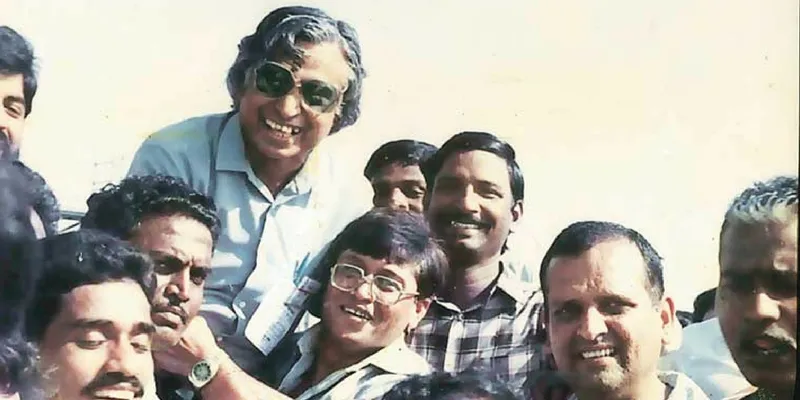
We have known Kalam as a nuclear scientist, a president and a teacher. But do we know of the Tamil poems he so ardently wrote, of his musical escapades on the strings of the Veena and his fixed inability to ride a bicycle? Kalam was no doubt an extraordinary personality, but while basking in all his vibrancy, we tend to forget that he was an ordinary man simply because he saw himself as one.
Life through his eyes
After his early education, and consumed by the desire to fly, Kalam decided to pursue a career as an Air Force pilot. With this goal in sight, he dove into the field of Aeronautical Engineering at the Madras Institute of Technology. When he graduated in 1955, exhilarated at being so close to his dream, Kalam walked into an interview with the Directorate of Technical Development and Production (DTDP). It is worth mentioning that Kalam had an unusual trait of acing interviews, finding them all “easy”.
Recalling the one at the Department of Atomic Energy (DEA) seven years later, Kalam said, “It was a fantastic interview. It was a great experience for me. They said they had selected me. My joy knew no bounds.” Although he found the interview with DTDP “easy” – as expected – and excelled in the one with the Indian Air Force (IAF), he couldn’t be recruited as there were only eight slots available, and Kalam was placed ninth.
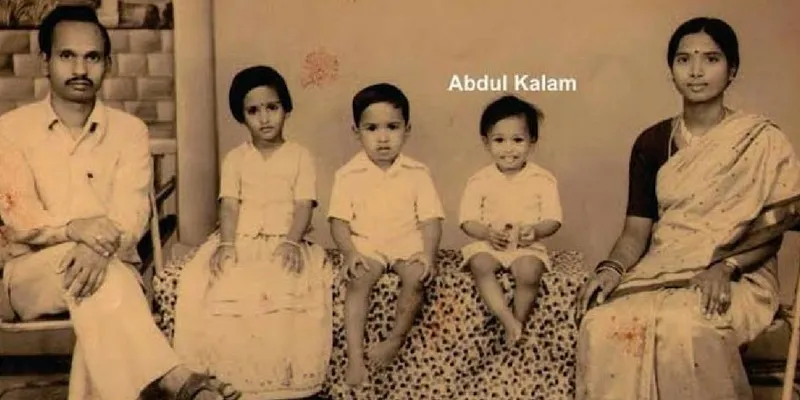
Having come so close to his dream – close enough to breathe in the promises of his desired future – only to have failed, Kalam found himself lost and distressed. In this memoir, My Journey: Transforming Dreams into Actions, he writes of this state of mind. He recalls he had “walked around for a while till I reached the edge of a cliff”, that he felt as if he “was staring into the pit of despair” before he decided to trek to Rishikesh. There he met Swami Sivanada, who, as Kalam strongly believed, changed his life. Empowered with new meaning to his life, Kalam then returned to DTDP to join as a Senior Scientific Assistant, where he began his legendary scientific endeavours.
As they knew Kalam – excerpts
Ramabhadran Aravamudan (former director of ISRO) popularly known as Dan among his associates, met Kalam in 1963 when they were dispatched to NASA for training by Vikram Sarabhai. Being vegetarians in a foreign country gave way to a lunch-comradeship which eventually strengthened into a good friendship as they spent a lot of time together, even outside of work.
Aravamudan later recalled a particular training session “where Kalam had to fire a dummy rocket when the countdown hit zero. It was only after half a dozen attempts when he kept firing the rocket either a few seconds too early or too late that the man who went on to become one of India’s best known rocket scientists managed to get it right.”
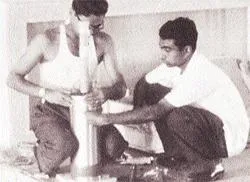
On his return to India, having gotten accustomed to the shuttles in Washington, Kalam was faced with an unusual problem.
He didn’t know how to ride a bike!” Aravamudan remembered with amusement. “He was forced to depend on me or one of the other engineers to ferry him to and from work.
After Kalam was elected as the President in 2002, he still remembered his friendship with Aravamudan and would occasionally invite him and his wife to stay with him. During one of these visits, for the National Awards ceremony, Aravamudan and his wife Gita received a message asking them to join him in the gardens.
It turned out that the great man needed a break from the formality of the awards function and wanted to get some fresh air. For more than an hour, we walked up and down the beautiful gardens, reminiscing about the old days in Thiruvananthapuram and the badminton games we used to play at the Rocket Recreation Club. He returned to his Presidential duties quite recharged.
Gita Aravamudan, a notable journalist and Aravamudan’s wife, met Kalam in 1970 while he was still working for ISRO. She developed a close friendship with him as Kalam spent a lot of time at their residence.
Dan and Kalam would share with me their stories of bachelorhood in Thiruvananthapuram where there was nowhere to go in the evening. They would wander about the streets of the city, they said, and for lack of a better name they dubbed it their Sanitary Inspection rounds!
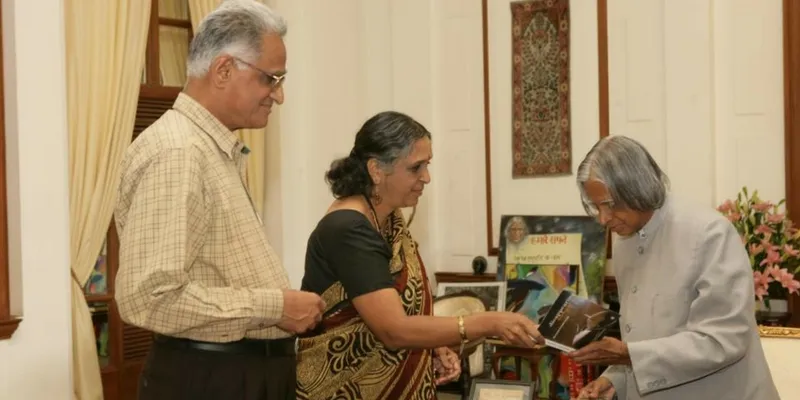
During a brief point when work at ISRO wasn’t very demanding, Kalam would play Badminton and Table Tennis, and place bets with Aravamudan and Gita at the Rocket Recreational club.
Kalam would turn up in our house on many Sundays to have home-made dosa or rasam and his very favourite potato fry made South Indian style. Since he was a vegetarian too, he really loved the food in our house. Later we would sit and talk about books…especially his favourite Atlas Shrugged.
Nambi Narayan, a former ISRO scientist, met Kalam in 1966 when he was working on rockets out of an old church in the village of Thumba (Where he was working when he met Gita). With Kalam as his team leader, Narayan formed an apprenticeship with him that lasted his whole life. He recalls a personal favour that Kalam did him when he was working in France.
I was finding it difficult to get my six-year-old son into a decent English-medium school in France. I wanted to send him back to India. Kalam, visiting us in Vernon, offered to take my son back to India. He held the boy's hand through the journey till he was safely deposited at my sister's place.
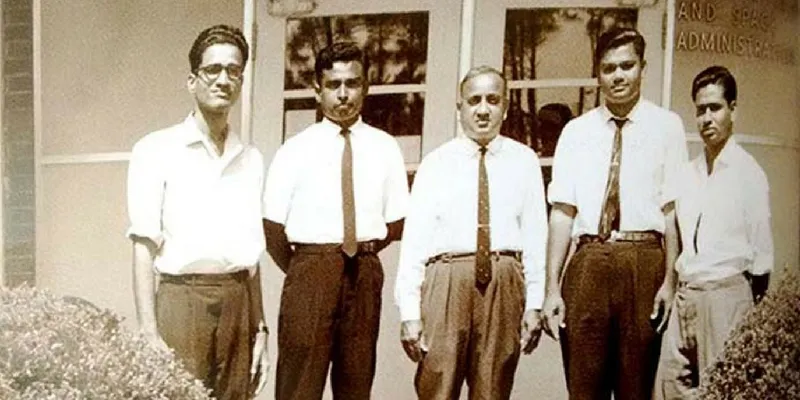
Bhagiratharao, a former ISRO scientist, met Kalam in 1972 when he was working as a junior scientist at the Aeronautical Development Establishment in Bengaluru. Kalam and Bhagiratharao shared an intimate interest in music. They organised a “Carnatic music sabha called Hamsadwani, organising one kacherieach month.”
Once, in 1985 or so…During our informal chat, he expressed his intense desire to play on the veena ‘Endero mahanu bhavulu’. I said he would find it very difficult as it is the most difficult of the Pancha Ratna kritis of Saint Tyagaraja, and the kriti has lot of embellishments. But he said he knew the meaning of the lyric and so wanted to learn it and play it on the veena. As I did not know Tamil script and he did not know Telugu script, we spent lot of time to ensure that he copied the lyric that I was dictating without errors.
He wanted me to send him a tape on which this kriti had been recorded as vocal and also on the veena, which I did. About a month or two later, when both of us were attending a meeting, Dr. Kalam vocally rendered one of the charanams of the kriti, to my utter surprise. Such was his determination to fulfill any target he set for himself.
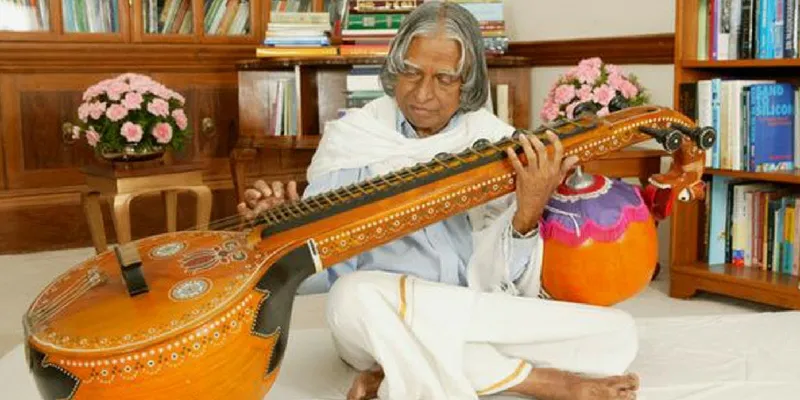
M.M. Rajendran, former Governor, met Kalam in 1992 in the Parliament when he was the Scientific Advisor of the secretary. When in Odisha for missile launches, Kalam, as Rajendaran recalls, “sat in his room listening to the chirping of birds. This, he said, gave him inspiration for the hard work that lay ahead.”
Remembering Kalam’s hospitality during a banquet in Rashtrapathi Bhavan, Rajendaran writes,
Though a strict vegetarian by choice, Dr Kalam never imposed his preference on his guests. He… took care to see that the best meat dishes were served. I found out later from his personal staff that each item in the menu had been personally chosen by him. That was the kind of generous hospitality that he extended.
Related read: The legacy of Dr. Abdul Kalam, the people’s President and a teacher forever
Y.S Ranjan, who co-authored the book India 2020: A vision for the New Millennium, met Kalam in 1996. Ranjan was an official travel companion for Kalam during many occasions before and after his election as President. During one of his meetings, Ranjan recalled,
Amidst all these serious discussions, he also saw out of the large glass window a lot of parrots sitting on the modern architectural structure. He told with a lot of excitement, Rajan see outside there! A lot of parrots. A place which the parrots make as habitat should be a very happy. So you are going to be very happy!
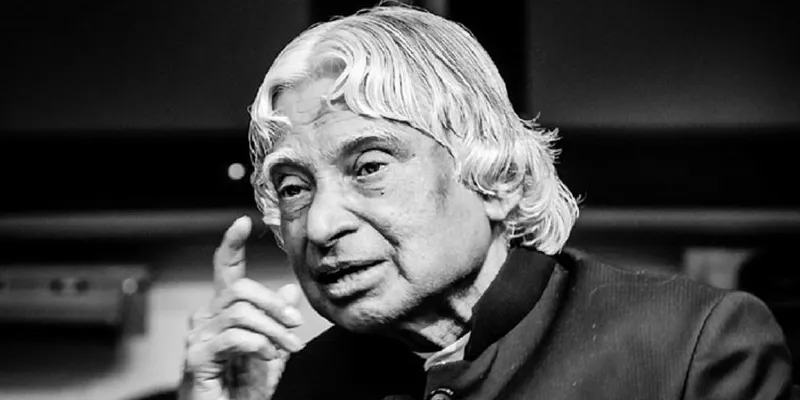
Kalam was also a poet, an identity he enjoyed more than any other. Although he wrote predominantly in Tamil, he had a few favourites of the English classics such as T.S. Elliot, Lewis Carroll and W.B Yeats.
In his article Human Feelings and Philosophy in Prof Dr APJ Abdul Kalam, Manorajan Das writes,
He did not believe the autonomy of art, or separation of art from other activities. He promotionally, affirms a poet’s idea is a mirror, which holds and images forth the universal scheme and working of the world. His own realisation of fundamental unity of the world and poetry, and the spiritual reality immanent in, it removes the ideas of separate existence from thought, and it reveals the wide spread of spirit. This spiritual understanding has its effect upon life… On the whole, Prof Dr AAPJ Abdul Kalam’s poetry is revolved in the arena of men’s mind, by acknowledging the unique meaning of life through the base of universal whiteness of reflection like sun-ray in the sky.
Dr A.P.J Abdul Kalam was a charismatic man of many talents but the love that people have for him, and what he will always be dearly remembered for, is his humility and generosity.







